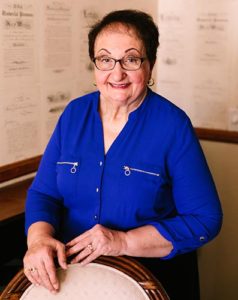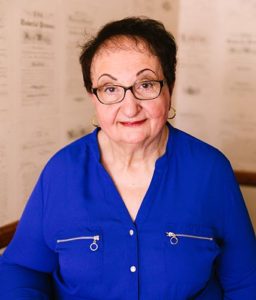Media Q and A
Geo-political history engages one’s mind; social history grabs one’s heart.
Historical fiction lets me place representational, fictional characters in the tapestry of a real historical era. That gives me the creativity to envision what living during that time might have been like for various groups of people.
I have always been fascinated by what happens when one culture attacks and conquers another. Dramatic changes occur, social order is upended, and all involved suffer the consequences. Living becomes very different for everyone involved. I want to explore what that might have been like.
In 1993 I was invited to join a local chapter of the Society of Creative Anachronisms, an “international organization which is dedicated to researching and recreating the arts, skills, and traditions of pre-17th-century Europe” (their words). By the time I created Lady Margaret’s persona and back story, I realized I was too busy to join the group. But my thoughts of her would not leave me.
After decades of researching and reading for my own pleasure about the Anglo-Saxons and the early years after the Norman invasion, I decided to place her in that era in a short story, which grew and grew. The next thing I knew I had a novel, then a sequel, and then a trilogy.
I named her after Princess Margaret of England (1930-2002). While the rest of the world followed Queen Elizabeth II of England, I followed Princess Margaret. I admired her feistiness and her struggle to live her own life within the confines of the royal family.
William the Conquerer’s son, William II (William Rufus) 1087-1100 AD caused much of the trouble his younger brother Henry faced when he became king in 1100. As I researched Henry, I concluded he was the rightful father of the English people. He fought his entire reign to create a new country, a new people, but his first years were the most dangerous.
Three factions were fighting for power. The Catholic Church wanted to control whoever was king. The Norman conquerers’ hold on the country was firm, but they were fighting each other and the crown. Many Saxons still dreamed of driving out the Normans and retaking their land. Henry was trying to hold the country together.
My Lady Margaret represents both sides of the social order of the time. She is a transitional figure with one foot in Norman society and the other foot in the Saxon one.
Born a Norman lady of rank, Lady Margaret is party to the privileges of her station. Even so, women of that era were property—owed by their fathers and husbands as they owned a horse or cow. When Margaret is cruelly reduced to servitude and forced to live among the Saxons, she realizes their lives are devastatingly harsh. She has to bargain and fight her way back into Norman society.
I structured the prequel and trilogy to show her struggles and eventual successes:
Lady Margaret’s Disgrace (prequel) – She is reduced to servitude.
Lady Margaret’s Escape – She bargains with the royals in order to escape the life she has been forced to live.
Lady Margaret’s Challenge – She wins land and coin, but few Norman men want her.
Lady Margaret’s Future – The king and queen help her find a new life.
Why not? The subtitle of the trilogy is Henry’s Spare Queen, because Henry needed an heir. If Queen Matilda could not provide one, I believe he was prepared to replace her if need be. I envisioned Lady Margaret as one of his possible candidates. King Henry was both a realist and pragmatic. To King Henry, having an heir to hold England and start a dynasty was more important than the woman who bore his son.
I spent 21 years reading, researching, imagining, and developing Lady Margaret’s story. In 2014 I found a writing partner who writes young adult science fiction. We paired up and used the model of the National Novel Writing Month to start our first books. With her encouragement I became a writing machine! I knocked out 65,000 words, the first draft of Book 1 and the start of Book 2 in 31 days. That’s about 2,100 words a day. After I drafted the contents of Book 3, my writing partner convinced me to write a prequel. My next steps have been to edit and re-edit, learn about the publishing business and start a social platform.
I want to know what life was like for the citizens during other times; that’s social history and a rich source of information and an untapped wealth of possibilities for story telling. I care about peoples’ lives during a specific era—how they lived, what they suffered, in what ways they triumphed over adversity, and how their lives have affected our lives today.
Few history books adequately portray what life was like for the average person. Geographical and political events interest me only in relation to the lives of the people affected by those factors.
Victoria's Fun Facts
- She loves to ride roller coasters-the bigger the better.
- The compliment she most often hears is, “You’re so organized.”
- She was the only girl to play baseball (called street ball) with the neighborhood boys. She switch hit, switch pitched, caught, and played 1st and 3rd base.
- As a child, her favorite picture book was The Pokey Little Puppy, probably because she was a pokey little person.
- She listens her favorite bagpipe music so loudly her closed windows rattle.
- Because she often misplaces her keys, she has multiples sets.
- She loves her red 1968 Ford Mustang convertible.
Victoria's Bios
Ms. Sportelli, who loves to share her knowledge of English history, has concluded that Henry I was an under-rated king who struggled to keep his throne amid conflicts between Normans and Saxons. She starts the story with Lady Margaret’s Disgrace, the prequel to the Henry’s Spare Queen Trilogy.
Ms. Sportelli, who loves to share her knowledge of English history, has concluded that Henry I was an under-rated king who struggled to keep his throne amid conflicts between Normans and Saxons. She writes of the era in novels featuring Lady Margaret, King Henry and Queen Matilda.
A life-long Anglophile, Ms. Sportelli loves British manners, folklore, customs, history, and humor; she watches every British film, television, show and documentary she can find.
Ms Sportelli has both children and grandchildren. She has taken seven trips to eight western European countries and loves England and Italy the most.
Ms. Sportelli, who loves to share her knowledge of English history, has concluded that Henry I was an under-rated king who struggled to keep his throne amid conflicts between Normans and Saxons. She tells Henry’s story through the eyes of the Lady Margaret, who helps him.
In college Ms. Sportelli fell in love with the Anglo-Saxon and early Medieval languages and cultures. She was particularly impressed with their poetry and their sophisticated society. She majored in English literature with a special interest in the Anglo-Saxon and the early Medieval periods. Ms. Sportelli still uses two former college texts, Anglo-Saxon Primer and History of the English Language.
Ms. Sportelli has concentrated her research and studies from 1050 to 1110 AD, from just before the Norman Invasion to Henry I securing his throne. During her reading and research, she concluded that Henry I of England was an under-rated king who did much to turn the Norman army of invasion into citizens of law.
As a life-long Anglophile, Ms. Sportelli loves British manners, folklore, customs, history, and humor. She watches every film, television show, and documentary she can find. She traipses about England as often as she can both for research and pleasure. After she completes the Lady Margaret series, she has outlines of three more historical novels, two set in England and one set in Italy. She is too busy concentrating on Lady Margaret’s story to choose which novel to write next.
On a cold winter day in South Dakota, Ms. Sportelli curls into her favorite chair under a wrap her children gifted her and reads. As a child, she was the only person in her town who was allowed to signed out 30 books a month from the local bookmobile. In high school and college she devoured almost every English novel from Le Mort d’Arthur by Sir Thomas Mallory through the nineteenth century English writers. Her favorite science fiction writers are Isaac Asimov and Robert Heinlein. She reads every day, whether it be fiction or nonfiction.
After retiring from teaching high school, middle school, and pre-service teachers, Ms. Sportelli started Organize Your Personal Space. Her company folded after the start of the Great Recession of 2007-2013. Few cared about organizing spaces when they worried about keeping their homes and jobs. About that same time, she totaled how many meals she had cooked over the years—over 15,000! Declaring that was her limit, Ms. Sportelli gave up cooking every day, much to her husband’s dismay. Now she would rather write than cook unless for a holiday, a special occasion, or when her children or grandchildren visit.
Ms. Sportelli loves to share her immense knowledge of the Anglo-Saxon and medieval periods with her readers, but when asked if she wants to live in England in 1100, she would kindly reply, “No indoor plumbing. No electricity or central heat. No chocolate yet in Europe. No thank you. I love to write about that era, not live it.”
When asked about chocolate, Ms Sportelli admits, “If it is in the house, I will eat it. I try to be strong and keep the house chocolate free, but I have been known to drive to a convenience store in the middle of the night for chocolate bars, ice cream, whatever I crave.”
Media Interview Questions
How honest about an era can a writer of historical fiction be if what you are writing is not truly history?
Why write historical fiction?
How did a short story expand into your prequel and a trilogy?
What inspired you to create your main character, Lady Margaret?
When did you start imagining the story of Lady Margaret?
Why was 1096 to 1105 such a dangerous time for King Henry of England?
Why did you weave Lady Margaret, your main character, into Henry’s first years as king of England?
Do you really think King Henry would have replaced his queen just because she could not provide an heir?
What took you so long to get you stories published? Why not just read a history book about King Henry?
Join the Group
Would you like to receive
short stories and other goodies for free?
Simply join VCS Readers group:
* This is a newsletter reader’s group.


